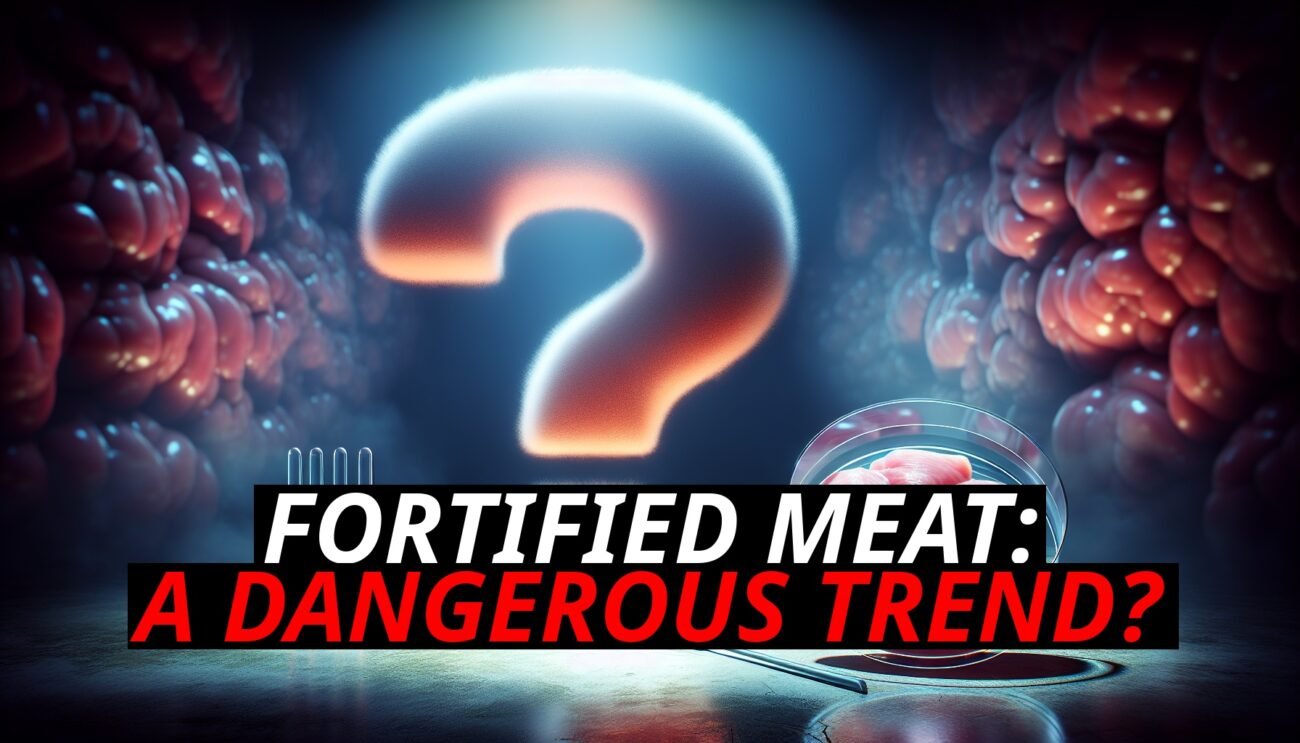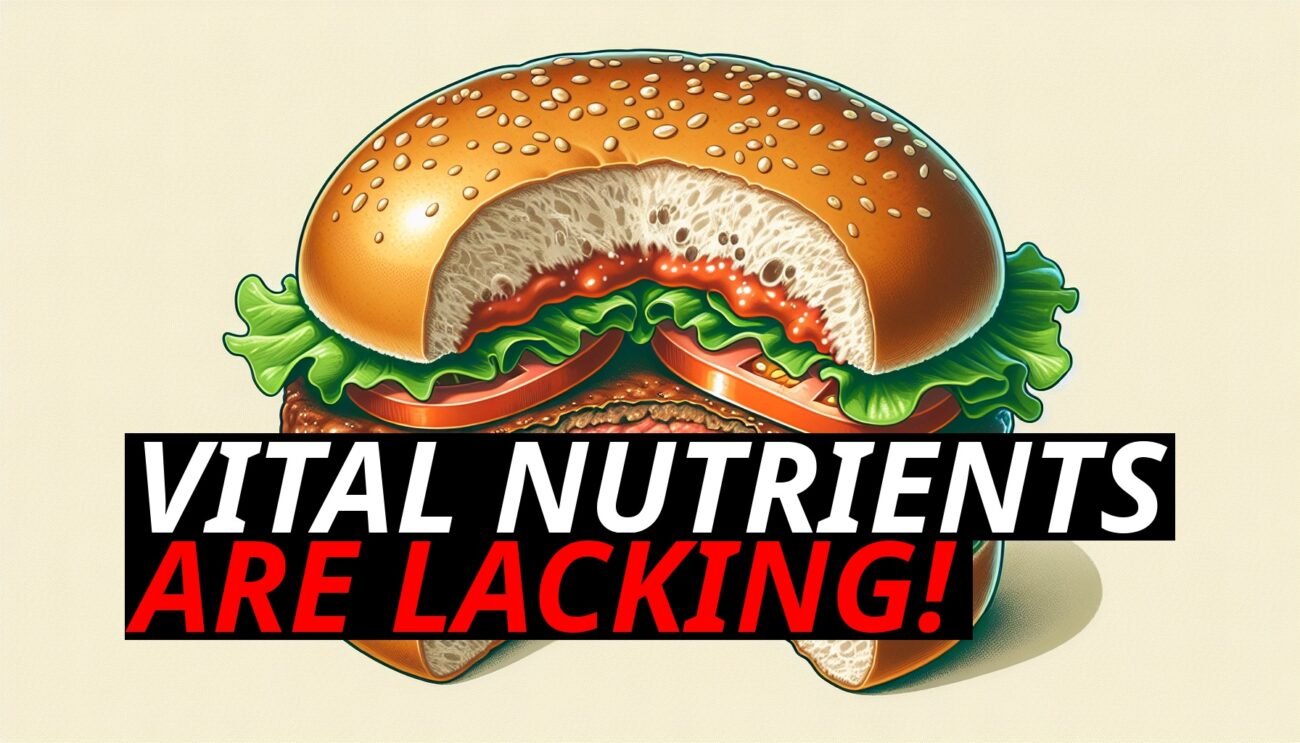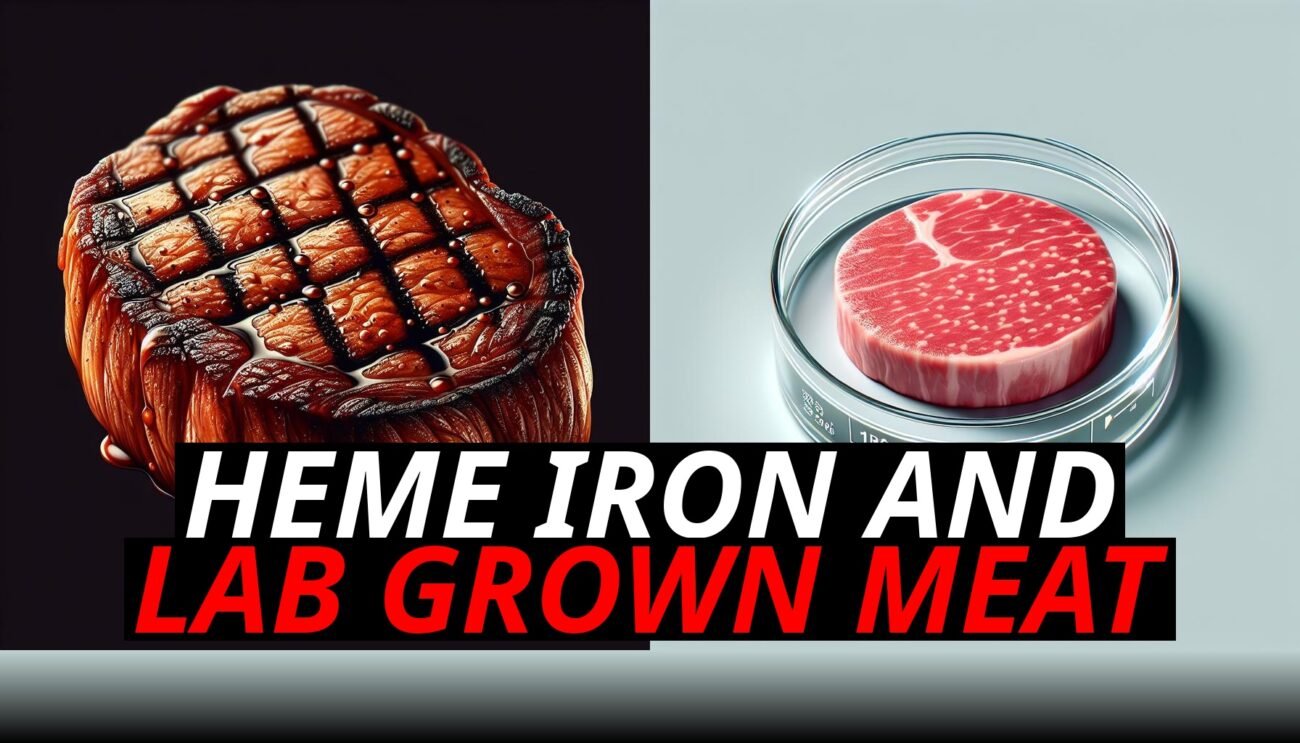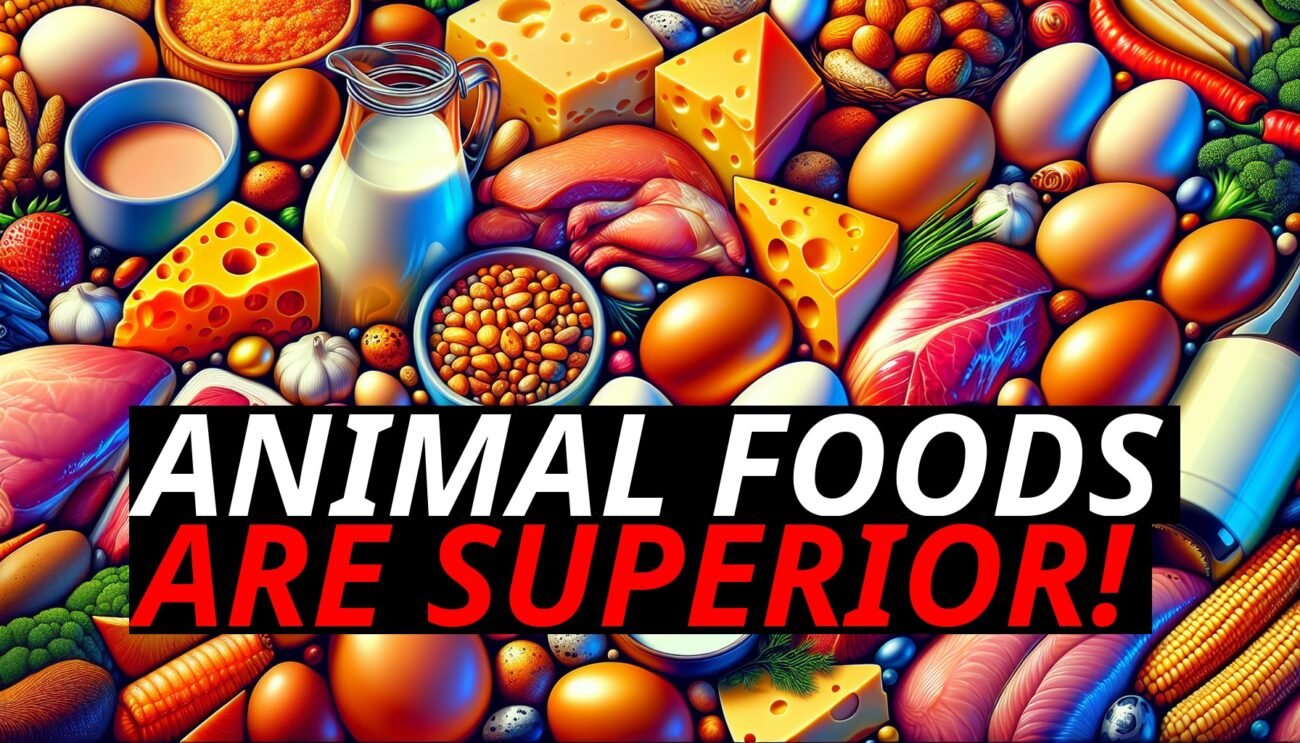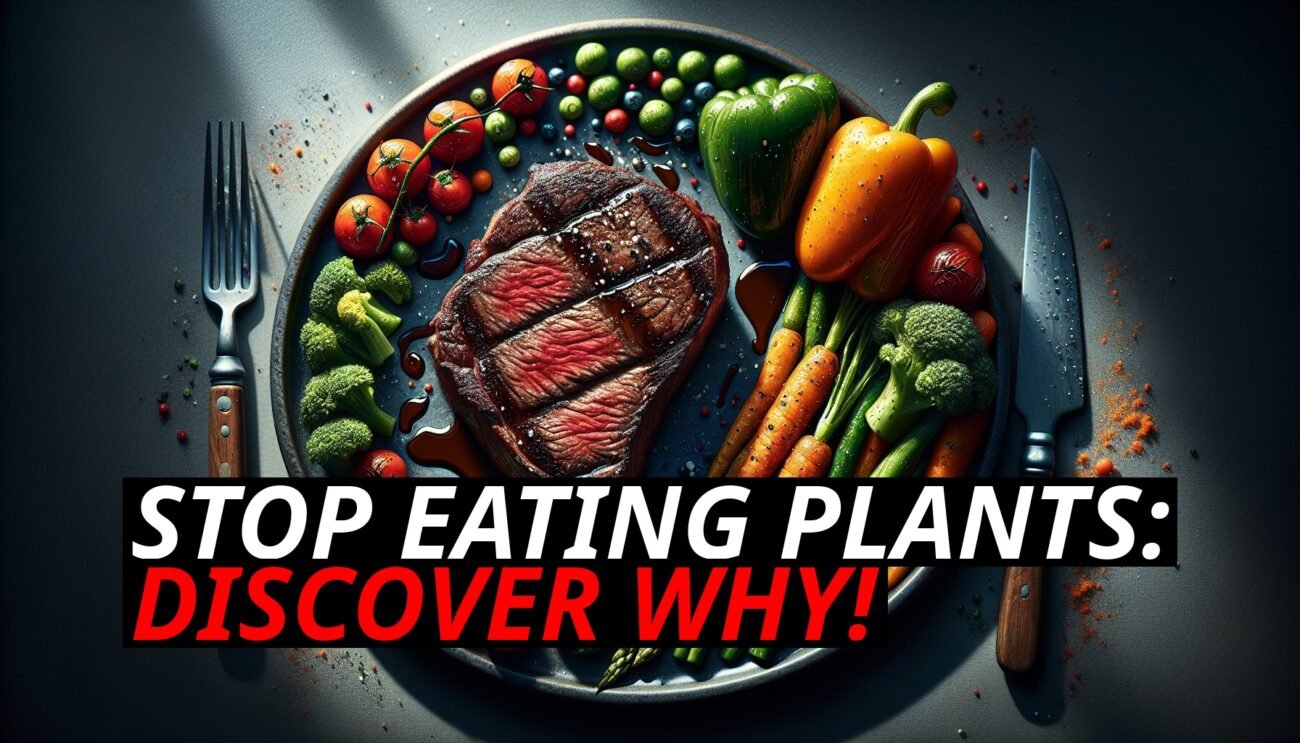Imagine a world where you’re told that everything you’ve ever believed about healthy eating—piling up your plate with fruits, vegetables, and grains—is wrong. Advocates of the carnivore diet argue just that: humans aren’t designed to eat plants at all. Instead, they claim our bodies are biologically built to thrive on meat alone. So, what’s the basis of this argument? Are humans really better suited for an animal-based diet, or is there more to the story? Let’s dive into the debate and explore whether we’re truly designed to eat plants.
The Carnivore Argument: Humans Are Built For Meat
Proponents of the carnivore diet, such as Dr. Shawn Baker and Dr. Paul Saladino, make a bold claim: humans are obligate carnivores, meaning that we’re designed to thrive on animal products, not plants. They argue that while humans can technically survive on a mixed diet, our physiology suggests that animal-based foods are what we’re best adapted to consume.
Here are the key points advocates of the carnivore diet make:
- Digestive System: Carnivore diet supporters point to the structure of the human digestive system. Unlike herbivores, which have large, complex guts designed to break down fibrous plant material, humans have relatively short digestive tracts. This, they argue, is more similar to that of true carnivores, such as lions or wolves, and indicates we are optimized to digest meat.
- Lack of Adaptation to Plant Toxins: Plants contain a variety of toxins and anti-nutrients—such as oxalates, phytates, and lectins—designed to deter herbivores from eating them. Carnivore advocates claim that humans haven’t evolved the same adaptations as dedicated herbivores, like cows, to safely detoxify these plant compounds. This means that many of the plants we eat may do more harm than good over the long term.
- Nutrient Density of Meat: Another core argument is that animal-based foods provide all the essential nutrients humans need, often in more bioavailable forms than plants. For example, vitamin B12, heme iron, and certain fatty acids are found almost exclusively in animal products, while plant-based alternatives are often less efficiently absorbed by the body.
The Selective Nature Of Plant Consumption
One of the most striking arguments from carnivore diet proponents is that not all plants are safe to eat—in fact, most plants are filled with chemical defenses that make them harmful in large amounts. This stands in contrast to the idea that humans can eat virtually any plant without consequence.
Just like herbivores such as cows or giraffes are highly selective about the plants they eat, humans may need to be more discerning about the plants we consume. Many of the plants that fill modern diets—especially those that have been highly processed—weren’t part of the human diet for much of our evolutionary history. Take grains, for example:
- Grains: While grains are a major staple in today’s food systems, they contain lectins and phytates that can interfere with nutrient absorption and digestion. Carnivore advocates argue that grains were not a regular part of the human diet until the advent of agriculture, and even then, they required extensive processing to be made safe for consumption.
- Leafy Greens: While often considered a healthy part of a balanced diet, some greens like spinach are high in oxalates, compounds that can bind with calcium and lead to the formation of kidney stones in susceptible individuals. Advocates of the carnivore diet argue that the risks posed by these plant compounds are often understated.
This argument isn’t just about plant toxins, though—it’s about the idea that humans have never been equipped to process large amounts of plant material over extended periods. The selective nature of plant consumption may suggest that plants should only play a minor role in the human diet, if any at all.
Are Humans Adapted To An Animal-Based Diet?
So, if the carnivore argument holds weight, are humans better suited to an animal-based diet? There are several points that carnivore diet supporters make in favor of this idea.
- Evolutionary History: Carnivore diet proponents often point to our evolutionary history to support the idea that we’re better suited to an animal-based diet. For hundreds of thousands of years, early humans survived by hunting large game and gathering only minimal plant foods. Some argue that our brain development and overall success as a species were fueled by high-protein, animal-based diets rich in fat, with plants serving a limited role.
- Nutritional Completeness: Meat, eggs, and organs contain all the essential vitamins, minerals, and macronutrients that humans need to thrive. Advocates of the carnivore diet claim that plants do not offer the same nutritional completeness, and some plant-based nutrients are harder for the human body to absorb. For instance, iron from meat (heme iron) is much more easily absorbed than non-heme iron from plants.
- Modern Health Issues: Carnivore diet supporters often point to the rise in chronic health conditions—from autoimmune diseases to metabolic disorders—as potential evidence that the modern emphasis on plant-based foods is leading to more problems. They argue that a return to an animal-based diet could help address many of these health concerns, as it eliminates the inflammatory compounds found in many plants.
The Counterargument: Humans As Omnivores
While the carnivore diet has its proponents, most mainstream nutrition experts argue that humans are omnivores—able to thrive on a variety of foods, including both plants and animal products. The ability to eat plants and animals is seen as an evolutionary advantage that allowed humans to adapt to different environments and food sources across the globe.
Some key points supporting the omnivore argument include:
- Evidence from Archaeology: Studies of early human diets show a mix of animal and plant-based foods. While meat played a significant role in our ancestors’ diets, plants like fruits, tubers, and nuts were also important food sources, suggesting that humans are adapted to a varied diet.
- Adaptations for Digesting Plants: Humans have evolved some adaptations for digesting plant foods. For example, we have enzymes like amylase, which helps break down starches, indicating that humans are capable of digesting carbohydrates from plants. Additionally, some cultures that have traditionally relied on plant-heavy diets, like the Okinawans, are known for their longevity.
- Health Benefits of Plants: Numerous studies highlight the health benefits of certain plant-based foods, such as fruits and vegetables, which are rich in antioxidants, fiber, and phytonutrients that promote heart health, support the immune system, and reduce inflammation.
Conclusion: Should We Eat Plants Or Stick To Meat?
So, are humans designed to eat plants? The answer likely depends on who you ask. Carnivore diet advocates argue that humans are best suited for an animal-based diet, pointing to our digestive systems, evolutionary history, and the risks posed by plant toxins. Meanwhile, supporters of a more balanced approach emphasize that humans are omnivores, capable of thriving on a mix of plant and animal foods, with plenty of evidence showing the health benefits of certain plants.
Ultimately, the decision may come down to individual needs and preferences. Some people may feel great on a plant-based diet, while others may find that they thrive on more meat. Understanding the arguments from both sides can help guide you toward a diet that works best for you, but it’s clear that the idea of indiscriminate plant consumption deserves a closer look. After all, not all plants are as friendly to the human body as we’ve been led to believe.


